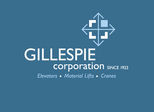- Glenn Siegel
- Apr 28, 2017
A wonderful confluence of circumstances resulted in a memorable visit to the Valley by South African jazz great Fezile “Feya” Faku and friends on Sunday, April 23rd. The concert that brought Faku from Johannesburg to the theater in New Africa House at the University of Massachusetts, Amherst was a large, happy coming together.
Faku dedicated the performance to his late countryman, Zim Ngqawana, a saxophonist who attended UMass in the early 1970s at the behest of Max Roach.
In the last few months, my friend and colleague Judyie Al-Bilali has committed to turning the history-laden, but moribund basement space in New Africa House into a sovereign, student-centered creative zone. Having cleared the room of broken chairs and desks, Judyie and her students cleaned, painted and reimagined the venue, then set about filling it with theater and music. The created environment, with tapestries, painted doors, jerry-rigged stage lights and couches, became a musical oasis for 85 lucky participants.
When I lamented that Pioneer Valley Jazz Shares’ full schedule prevented us from presenting one of South Africa’s most esteemed jazz trumpeters, Judyie asked, “Feya Faku?” The pieces fell into place when Amherst College Assistant Professor of Music Jason Robinson offered to fund an afternoon workshop.
Boston-based pianist and arranger John Kordalewski, whose 12-piece Makanda Project was featured during Season 3 of Jazz Shares, is connected to the South African jazz scene and served as facilitator for this concert. For his abbreviated New England tour (Connecticut stops at Black Eyed Sally’s and the Side Door Café), Faku insisted on asking Kesivan Naidoo, with whom he has decades of experience, to join them. The 37-year old drummer from East London, South Africa was among the first Masters students at Berklee’s Global Jazz Institute and now lives in New York. Colombian bassist Carlos Pino is earning a degree from the New England Conservatory and has been subbing for John Lockwood in the Makanda Project.
Kordalewski, Amherst College Class of 1976, also has employed tenor saxophonist Robinson in his little big band dedicated to the compositions of Makanda Ken McIntyre. So when Robinson was asked to sit in on the afternoon rehearsal, hopes were high that he would play some that evening. The rapport between Faku and Robinson was so profound he became a full participant.
Faku told the assembled that his older sister’s Blue Note record collection helped shape his interest in jazz, and indeed his approach as a composer and player reflect his debt to that great catalog. The music throughout the 75 minute concert was drenched in blues, swing and tart harmonies. Only the last piece overtly referenced the joyous, life-affirming bounce of South African jazz, but to these ears, the phrasing, scales and the open-hearted nature of Faku’s playing all spoke of South Africa.
It says a lot about his character that Faku turned down a high profile Town Hall (New York) concert under Abdullah Ibrahim’s direction because his own ensemble had a previous commitment. Replacing an ailing Hugh Masakela before 1,500 concertgoers would have been a good career move, but that’s not how Feya Faku rolls.
Naidoo spent two nights with us in Northampton, sharing stories of his family history. His aunt, Theresa Mary Solomon, was Mayor of Cape Town from 1996-98. His great uncle spent 10 years with Nelson Mandela at Robben Island for revolutionary activity. Naidoo shared his musical history, as well. He recently recorded with the great bassist William Parker, and performs in his Artists For a Free World Marching Band, which lends its voice to street demonstrations for progressive causes. He has worked with Joe Lovano, Rene McLean and South African pianists Hotep Idris Galeta and Kyle Shepherd. A powerful and spot on drummer with a built-in understanding of South African rhythms, Naidoo has an easy laugh and a generous soul.
Pino was situated in the middle of the “stage” (an area of concrete real estate a few feet from the audience.) His role was central to the band’s mastery of Faku’s playful, yet complex compositions. He moved his head, his body and his instrument side to side all evening with an expression that evoked joy and concentration. In those moments, I imagined he thought his move from Bogata to the U.S. with little English and few resources, was worth it.
Jason Robinson forsook an Amherst College commitment so that he could play the concert. He seemed genuinely honored and excited to perform. To the less gifted it seems unfathomable that Robinson could meet three of his band mates and see the music for the first time on Sunday and make music of such splendor. The immediate connection between the musicians was a powerful illustration of the power of the arts to transcend difference.



























